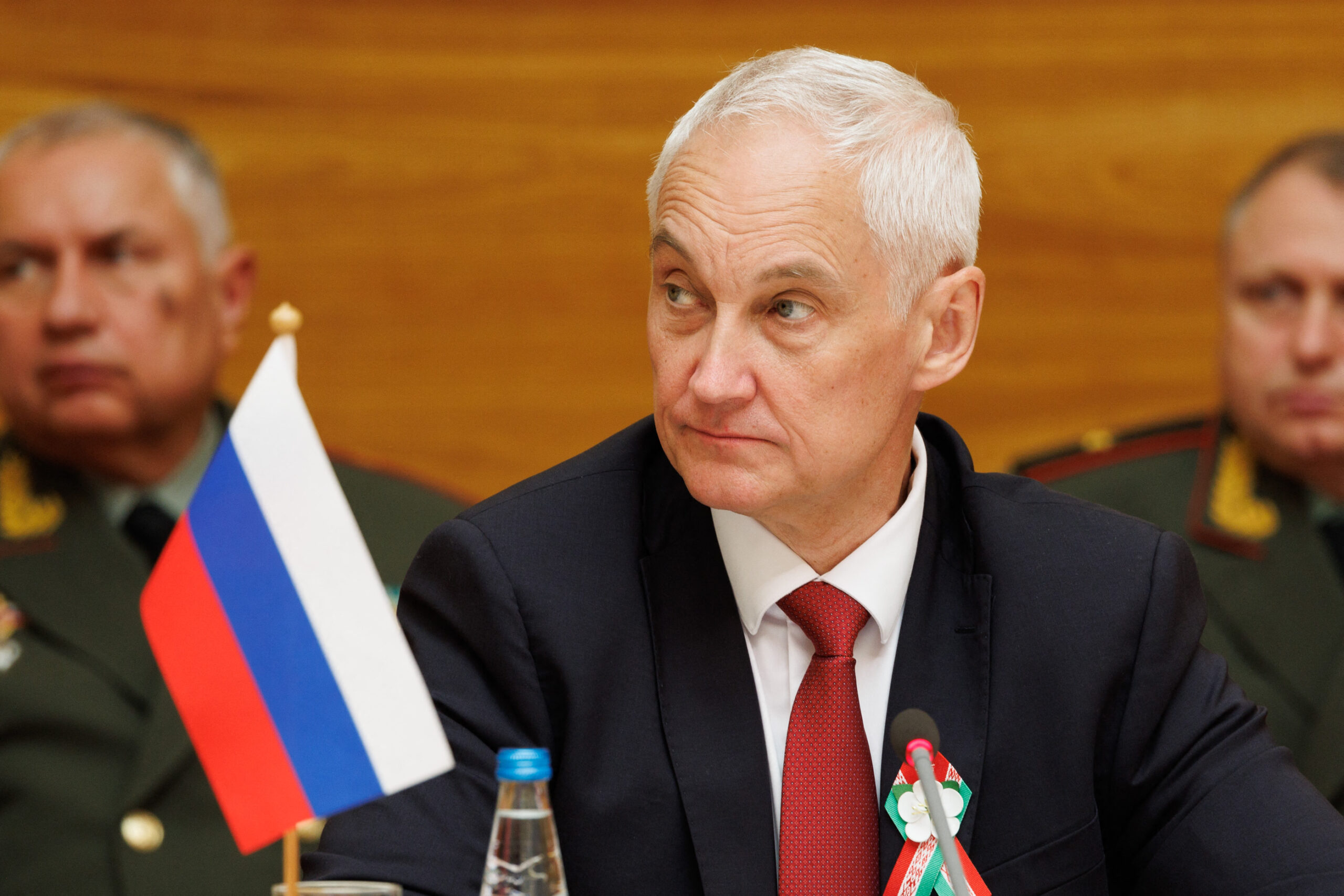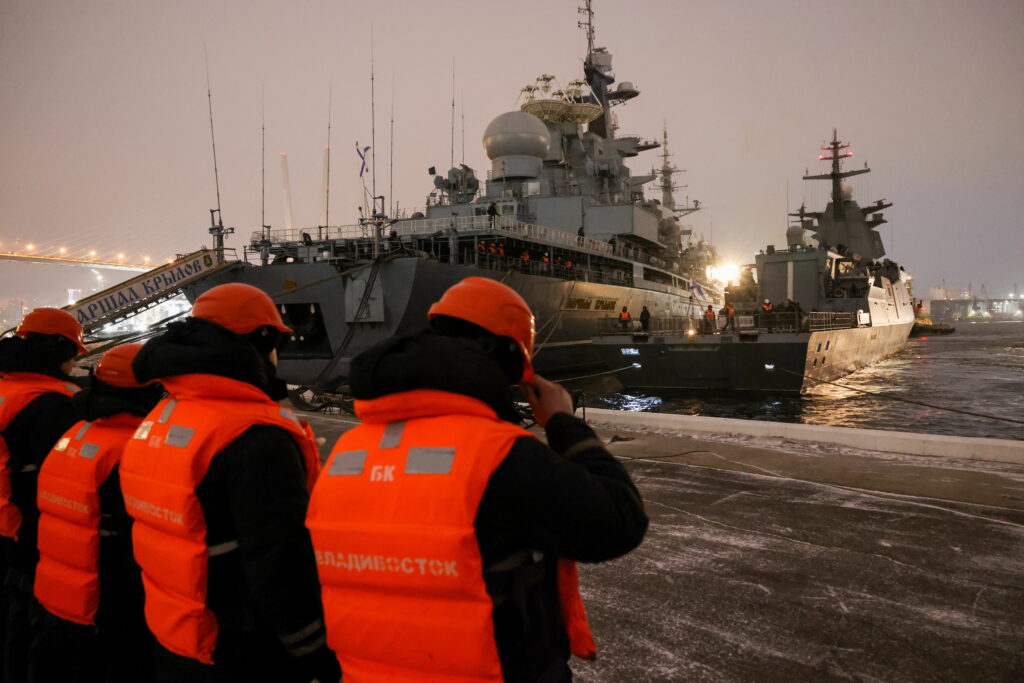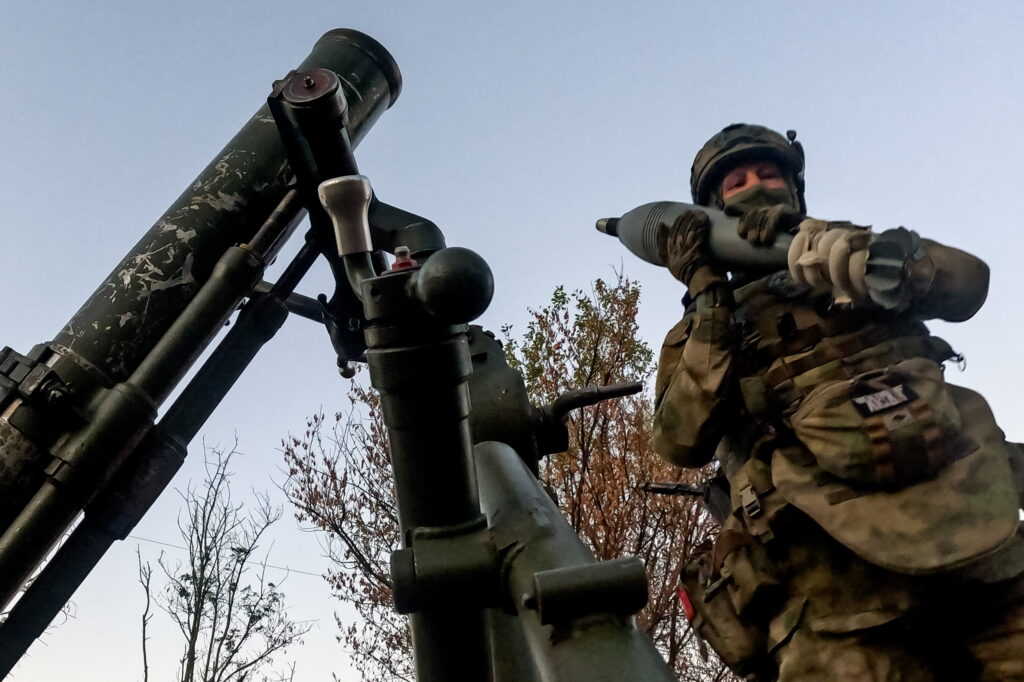Vladimir Putin has appointed Anna Tsivileva, head of the «Defenders of the Fatherland» Foundation and daughter of his late cousin, as deputy Defense Minister. Two other deputy Defense Ministers appointed around the same time are former First Deputy Finance Minister Leonid Gornin and Pavel Fradkov, son of former Prime Minister Mikhail Fradkov. The three will have to work with the head of the department, former First Deputy Prime Minister for the Economy Andrey Belousov. But the list of Belousov’s deputies does not end there. Another one of his deputies, Oleg Savelyev, is a former auditor of the Accounts Chamber and ex-head of its apparatus. All these people have never worked together, do not know each other and their new boss at all or at best, rather poorly. They are not really a «team» united by common goals, values or at least membership in the same clan. Putin has tried to assemble the top brass of the Defense Ministry according to his ideas of efficiency and controllability. As a result, the new Minister will have to piece together at least some semblance of a unified crew from a range of personalities with different professional backgrounds and from different spheres of influence. In the best case scenario, it will take some time before he manages to form some sort of a «team», but more realistically, Belousov’s team will be torn apart by conflicts between status personalities with different managerial experience, views on the economy and belonging to different elite groups.
A lone theoretician
After Andrey Belousov was appointed Defense Minister, many observers expected Putin’s economist to turn the Defense Ministry into a super-efficient machine and put the Russian economy on a military footing, even dubbing Belousov «Putin’s newest weapon.» Their logic was simple: technocrats loyal to the Russian leader successfully fight sanctions and prevent the economy from collapsing. There are several problems with these predictions. First, Belousov has always been a theoretician with etatist views, not an economic practitioner. Secondly, the Defense Minister has no authority to determine the government’s financial and economic policies; the leadership of the financial and economic bloc does not report to him in any way, but rather to the prime minister and the president. In his previous position as deputy Prime Minister in charge of economic affairs, Belousov had much more tools and opportunities at his disposal to truly «militarize» the structure of the country’s economy. Finally, we do not really see any experts in his team who could take the reins of such a challenging ministry. This happened because Belousov had only been in charge of a hierarchical structure, — which would have allowed him to form a team — for a very short time: he was Minister of Economic Development for only one year. After that he worked as an aide and de facto adviser to Vladimir Putin. Officials working in this position have an extremely limited circle of subordinates, usually a few record clerks-secretaries. The transition to the post of deputy Prime Minister has not changed the situation much as deputy Prime Ministers’ secretariats are also small.
A more realistic look at Belousov’s tasks reveals that the new Defense Minister, by very virtue of his previous experience and his status as Putin’s aide and confidant, will have to put the Defense Ministry’s finances and economy in order and root out the corruption schemes planted by the clan that ran the ministry in the past. Of course, due to the peculiarities and inertia of the «military» ministry, this will take time: the «civilian» Belousov will have to delve deeper into the nitty-gritty of the defense economic machine and piece together a team, which he does not yet have. If these conditions are met, the new minister could well establish a more or less efficient operation of the Defense Ministry. But there is a big «but.» Judging by recent personnel decisions within the ministry, Andrei Belousov has no mandate to form a team.
Motley crew instead of a team
Belousov’s predecessors, Sergey Shoigu and Anatoly Serdyukov, had a mandate to form such a team (the former hired long-time acquaintances from the Emergencies Ministry, the latter from the Federal Tax Service). The effectiveness of their work is subject to a debate, but such a mandate allowed them to formulate unified goals for their subordinates and to build their authority as team leaders. Of the new deputies, only Savelyev has direct experience of working with the minister — between 2008 and 2014, he served as deputy economy minister and crossed paths with Andrey Belousov during Belousov’s brief one-year stint in charge of the Ministry of Economic Development. The other officials did not work with Belousov, and the Finance Ministry (Leonid Gornin used to work there), has traditionally been at odds with him. The new deputies do not know each other and come from different influential groups. Gornin can be described as a representative of the group of «financiers» led by Finance Minister Anton Siluanov. Anna Tsivileva is the daughter of Putin’s late cousin, who for many years had chaired the board of directors of the Kolmar coal company, one of the main assets of Gennady Timchenko, a businessman close to the president. Pavel Fradkov is the son of the former Prime Minister and former head of the foreign intelligence service, Mikhail Fradkov, and the brother of the head of Promsvyazbank, Pyotr Fradkov. These are all different groups, with different approaches to governance and different spheres of interest.
What could be the «glue» holding the «team» together is its members’ experience in the defense sector. However, Leonid Gornin, who oversaw defense spending at the Finance Ministry is the only one that actually has certain connections to the sector. Anna Tsivileva has run and will continue to run the Presidential Foundation «Defenders of the Fatherland», which assists former front-line soldiers with everyday problems and provides them with psychological support. At the ministry, Tsivileva will oversee healthcare with a very specific focus, the no less specific education and the Young Army («Yunarmia») movement.
The Minister of Defense will, to use the army terminology, have to literally get his deputies up to speed and to establish operational coordination in combat conditions. And this adjustment will certainly not be quick. The process may be complicated by the fact that Andrey Belousov’s deputies are personally oriented towards Putin and the heads of influential groups from which they come (i.e. see them, not Belousov as their bosses). Tsivileva, Fradkov and Gornin have direct access to the president, and it cannot be ruled out that they will use it to lobby for their ideas. Serdyukov’s and Shoigu’s subordinates had no such opportunity, so they presented their initiatives to their immediate boss. The Minister himself was the final and ultimate authority and the center of decision-making. Today the management of the economic and financial parts of the Defense Ministry is a collectivity; the minister’s deputies are not his no-name managers, but people with certain weight and status in the power vertical, belonging to different schools of economic thought and different clans. This «collectivity» will certainly not increase the speed and efficiency of decision-making required by military conditions. To use another analogy, Belousov became the coach of a hodgepodge of a national team, a motley crew of ambitious players rather than a cohesive team he had personally hand picked. What’s more, the players of this team were assembled by its main sponsor, who was guided by personal sympathies and family ties. Anna Tsivileva is already pursuing an independent public relations policy, giving interviews to the leading media (previously, deputy Defense Ministers did no such thing).
Putin micromanages the army in the personnel policy of the Ministry of Defense and interferes in the management of units at the front in the exactly same way, clearly considering himself to be the main man in the armed forces. At the same time, the punishment for failures and setbacks is borne by the actual superiors: for example, Sergey Shoigu or the frequently changing commanders of units at the front. If Belousov’s motley crew performs ineffectively, the minister will be the first to be punished for the poor performance. Collective leadership in the Russian power system does not provide for collective responsibility.










